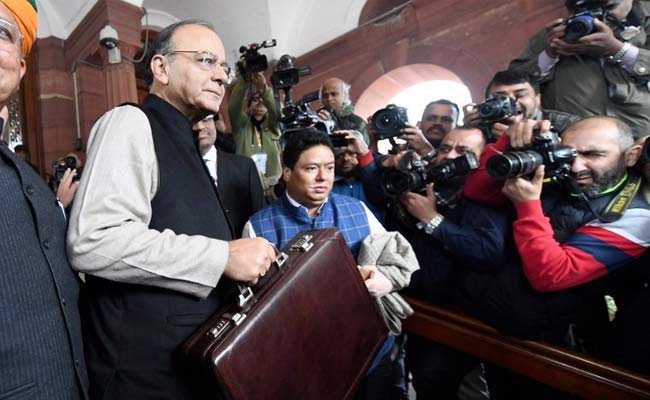
Budget 2018: Finance Minister Arun Jaitley may bring back standard deduction for salaried employees.
Finance Minister Arun Jaitley
will on February 1 present the fifth Union Budget of the Narendra Modi
government. Expectations are high that the finance minister will may
raise the minimum exemption limit from the current level of Rs.
2.5 lakh. Multiple outdated deductions could also be replaced with a
standard deduction to reduce the tax burden on salaried employees. Standard deduction
allows for a flat deduction from income of a salaried individual
towards expenses that would incur in relation to his or her employment.
Over the years, since his first Budget in 2014, Mr Jaitley has
introduced a number of changes in income tax laws.
On the other side, the surcharge on the super-rich (those with an income of over Rs. 1 crore) was raised from 12 per cent to 15 per cent.
In Budget 2017-18, the finance minister reduced the tax rate for income between Rs. 2.5 lakh and Rs. 5 lakh to 5 per cent. However, he reduced rebate under Section 87A from Rs. 5,000 to Rs. 2,500. According to Budget 2017-18, no rebate is applicable for taxpayers having income above Rs. 3.5 lakh. He also introduced a surcharge of 10 per cent on tax for income between Rs. 50 lakh and Rs. 1 crore.
Here are some of the tax changes announced since Budget 2014-15:
Budget 2014-15
Mr Jaitley raised the income tax exemption limit from Rs. 2 lakh to Rs. 2.5 lakh for individual taxpayers below the age of 60 years. For senior citizens, the limit was increased to Rs. 3 lakh. He also raised the deduction limit under Section 80C of the Income Tax Act by Rs. 50,000 to Rs. 1.5 lakh. Deduction limit for interest payable on home loan (self-occupied property) was also hiked to Rs. 2 lakh, from Rs. 1.5 lakh.Budget 2015-16
The finance minister in his first full-year Budget raised health insurance premium deduction from Rs. 15,000 to Rs. 25,000 and increased transport allowance from Rs. 800 per month to Rs. 1,600 per month. Mr Jaitley also scrapped wealth tax but raised the surcharge by 2 per cent to 12 per cent for those having an annual income of more than Rs.1 crore. In Budget 2015-16, Mr Jaitley also introduced an additional income tax deduction of Rs. 50,000 for contribution to the New Pension Scheme (NPS) under Section 80CCD.Budget 2016-17
The finance minister announced new measures to provide relief to small taxpayers. Mr Jaitley raised the deduction limit under Section 87A of the Income Tax Act from Rs. 2,000 to Rs. 5,000 per annum. Under Section 87A, taxpayers first reduce Rs. 2,000 from their total tax payable. This section applied to those with a total income of less than Rs. 5 lakh.
1 Comments
The
finance minister also announced relief for taxpayers who do not own a
house and don't get house rent allowance from employers. It was raised
to Rs. 60,000 per annum under Section 80GG, from Rs. 24,000. Mr Jaitley also announced an additional deduction of Rs. 50,000 on interest paid by first-time home buyers on home loans of up to Rs. 35 lakh, provided the house value doesn't exceed Rs. 50 lakh.On the other side, the surcharge on the super-rich (those with an income of over Rs. 1 crore) was raised from 12 per cent to 15 per cent.







